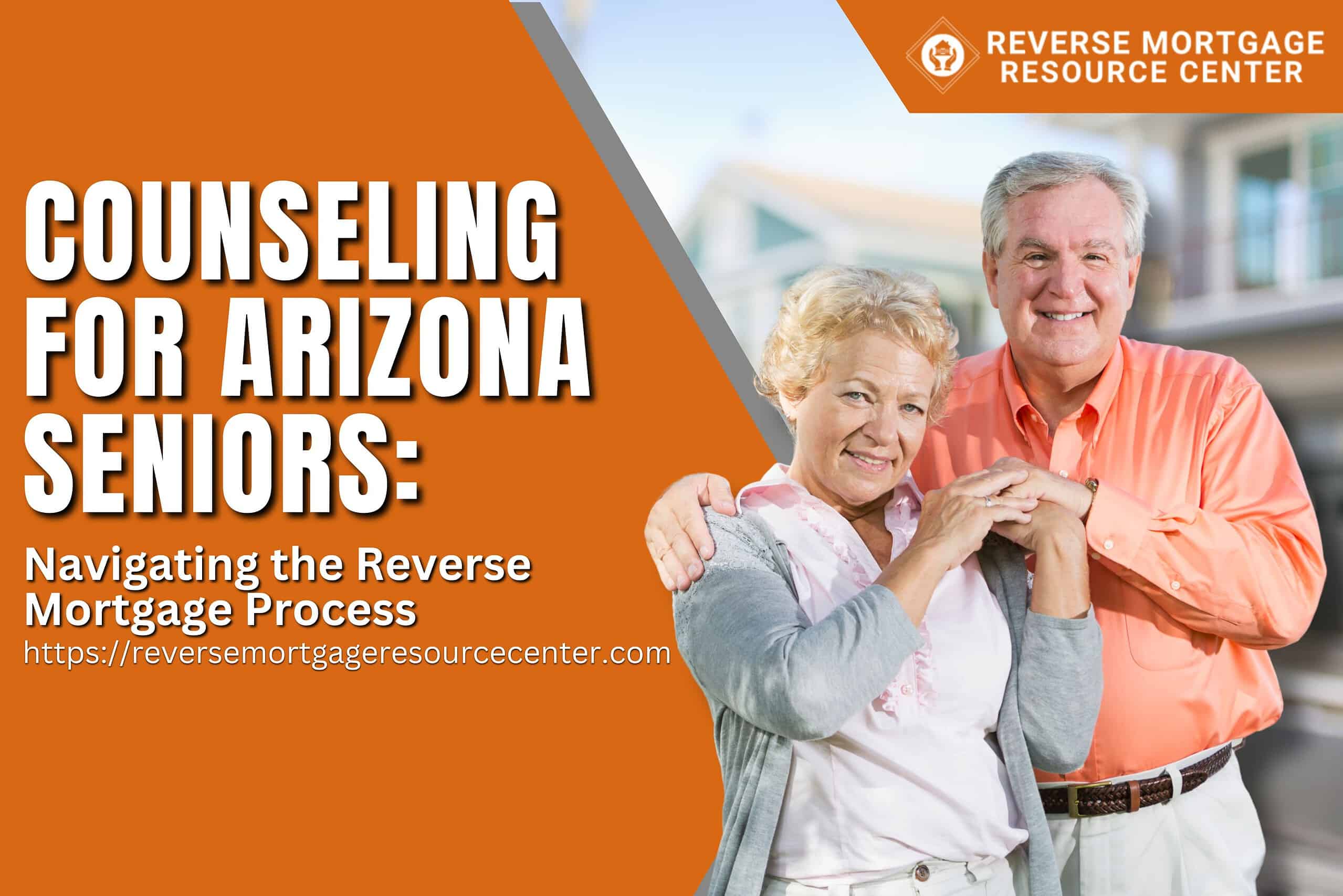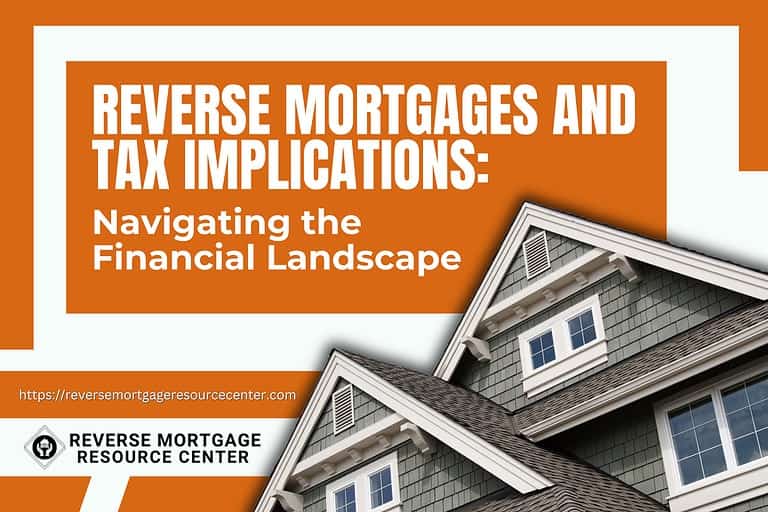Counseling for Arizona Seniors: Navigating the Reverse Mortgage Process
As Arizona seniors explore their financial options for retirement, reverse mortgages have emerged as a significant tool for tapping into the equity they’ve accumulated in their houses. While reverse mortgages can give financial comfort and security to seniors, they also have a complex set of restrictions and considerations. Counseling is essential in guiding elders through the complexities of the reverse mortgage process, ensuring a smooth and well-informed experience. This article discusses the significance of counseling for Arizona elders, providing insight and advice on navigating the reverse mortgage landscape.
Understanding Reverse Mortgages
What Is a Reverse Mortgage?
A reverse mortgage, also known as a Home Equity Conversion Mortgage (HECM), is a one-of-a-kind financial product tailored to seniors aged 62 and up. A reverse mortgage, as opposed to a standard mortgage, which requires homeowners to make monthly payments to a lender, allows seniors to convert a portion of their home equity into tax-free loan proceeds. These funds can supplement retirement income, pay medical bills, or upgrade a home.
Types of Reverse Mortgages
There are three types of reverse mortgages:
HECM Standard: The most prevalent type is the HECM Standard, which is insured by the Federal Housing Administration (FHA) and provides a flexible approach to accessing your home equity.
HECM Saver: The HECM Saver, a lesser-cost alternative with smaller loan limits, can be a smart solution for seniors who don’t need a large lump sum disbursement after closing.
Proprietary Reverse Mortgages: Private lenders offer proprietary reverse mortgages suited for seniors with high-value residences who want to access larger loan amounts.
The Role of Counseling
Mandatory Counseling
Seniors are required by law to seek counseling from a Department of Housing and Urban Development (HUD)-approved counselor before proceeding with a reverse mortgage application. This counseling is intended to ensure that seniors fully understand the implications of a reverse mortgage and make an informed decision.
The Benefits of Counseling
Counseling is essential in the reverse mortgage process for various reasons:
Education: It gives elders a thorough understanding of how reverse mortgages function, including the fees and obligations involved.
Financial Assessment: Counselors evaluate your financial condition to determine whether a reverse mortgage fits you.
Alternative Options: Seniors are provided with information on alternative financial solutions, allowing them to make an informed decision based on their specific circumstances.
Legal Protections: Counseling ensures that elders understand their legal rights and protections.
Risk Mitigation: Counseling helps seniors understand reverse mortgages’ possible dangers and drawbacks, allowing them to make the best decisions.
Choosing the Right Counselor
HUD-Approved Counselors
Working with a HUD-approved counselor will ensure you obtain accurate and unbiased information. These counselors undergo extensive training and certification processes to ensure they have the information and competence to provide good advice.
Finding a Counselor
Locate Approved Counselors: The first step is to look for a list of HUD-approved counselors in your area. This information is easily accessible on the HUD website.
Check Credentials: Once you’ve narrowed your list of potential counselors, look into their credentials, reviews, and experience. When feasible, seek referrals from reliable sources.
Interview Potential Counselors: Arrange an initial meeting or consultation with potential counselors. This helps you analyze their communication style and your comfort level working with them.
Cost Considerations: Some counseling services are free, while others may require a fee. Make this clear during the selection process.
The Counseling Process
Pre-Counseling Education
You’ll usually be given instructional materials to read before meeting with a HUD-approved counselor. These documents serve as a primer on reverse mortgages, preparing you to ask questions and address concerns.
Counseling Session
The counseling session is an important part of the reverse mortgage procedure. The counselor will do the following during this session:
Assess Your Needs: The counselor will assess your financial condition and discuss why you are considering getting a reverse mortgage.
Explain the Basics: They will review the basics of reverse mortgages, including the many available varieties.
Costs and Obligations: The counselor will explain the costs involved, the obligations you must fulfill, and the repercussions of failing to do so.
Alternatives: You will be told about other possibilities, such as downsizing, using home equity lines of credit, or applying for government aid.
Legal Protections: The counselor will explain your legal protections and ensure you understand your rights.
Questions and Concerns: The counselor will encourage you to ask questions and share any issues you may have throughout the session.
Certification of Counseling
After the counseling session, the counselor will give you a Certificate of Counseling. This certificate is a necessary document to proceed with your reverse mortgage application. It demonstrates that you have completed the FHA’s obligatory counseling requirement.
Making an Informed Decision
Evaluating Your Options
It is critical to take some time after obtaining counseling to consider your alternatives. Consider the following:
Your Financial Goals: Determine your retirement financial needs and goals. Determine whether a reverse mortgage is a good fit for your goals.
Alternative Solutions: Consider the advantages of a reverse mortgage compared to other financial options.
Costs and Risks: Consider the expenses and risks of a reverse mortgage, such as origination fees, closing charges, and interest rates. Consider the hazards, including the impact on your home equity.
Future Planning: Consider how a reverse mortgage will affect your long-term house and estate plans.
Consult with Financial Advisors
In addition to the counseling session, it’s a good idea to talk with a financial advisor or an attorney to ensure that a reverse mortgage fits your overall financial plan. Based on your scenario, they can provide helpful insights and assistance.
The Reverse Mortgage Application Process
Lender Selection
Once you’ve decided to pursue a reverse mortgage, the next step is to find a lender. Look for reliable lenders, compare terms, interest rates, and closing costs, and read borrowers’ feedback. In this procedure, your HUD-approved counselor can offer advice and guidance.
Application Submission
After deciding on a lender, you’ll fill out the reverse mortgage application containing financial information and information about your home. The lender will examine your application and perform a financial analysis.
Appraisal and Underwriting
The lender will appraise your home to ascertain its current market worth. Underwriting entails thoroughly examining your financial records, credit history, and appraisal reports. The lender will next make a final decision on your loan eligibility and terms.
Closing and Disbursement
Following approval, you must attend a closing where the loan will be formalized. The loan proceeds can be disbursed to you in various ways, including a flat sum, a line of credit, monthly installments, or a mix of these.
REVERSE MORTGAGE RESOURCE CENTER ~LIVE LIFE ON YOUR TERMS~
Our Lending Team has been serving our clients since 2004. We are passionate about serving our clients with integrity to help them achieve their financial goals.






